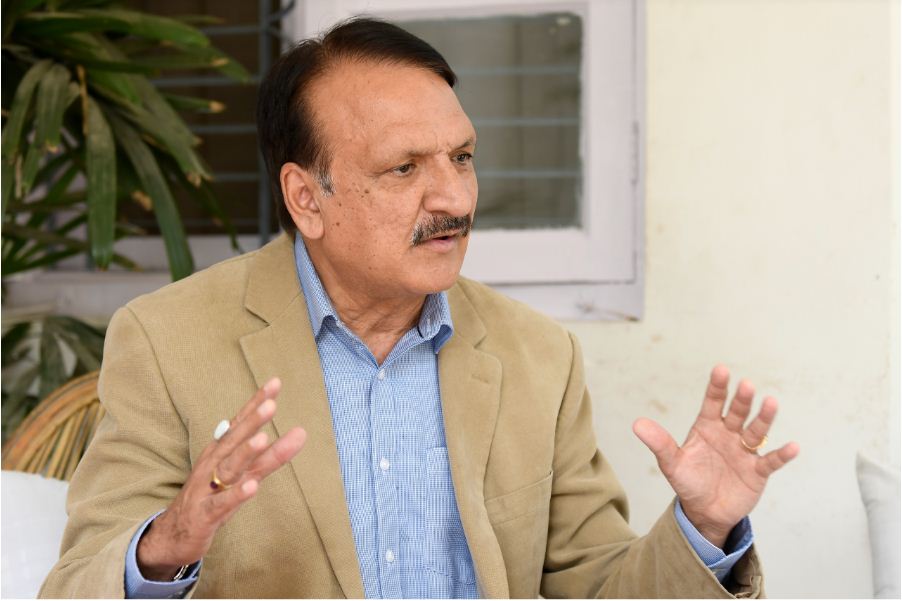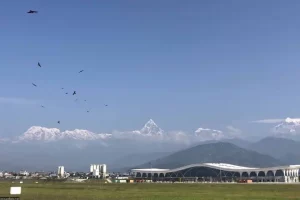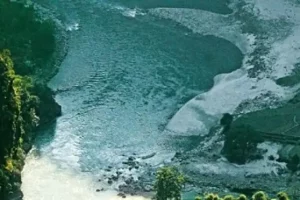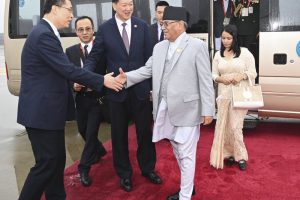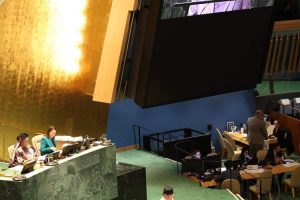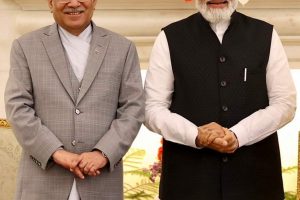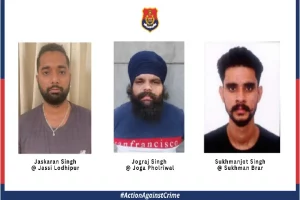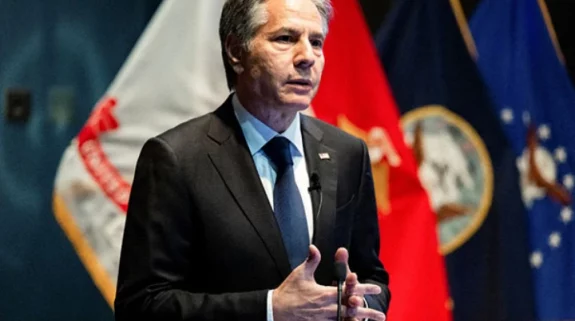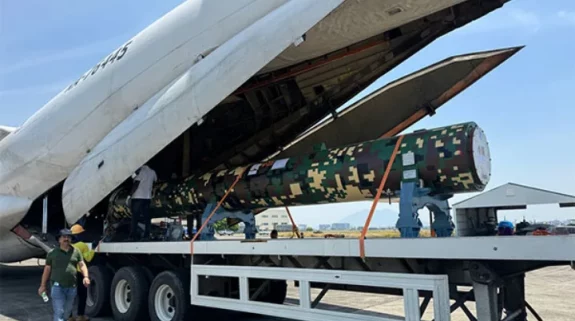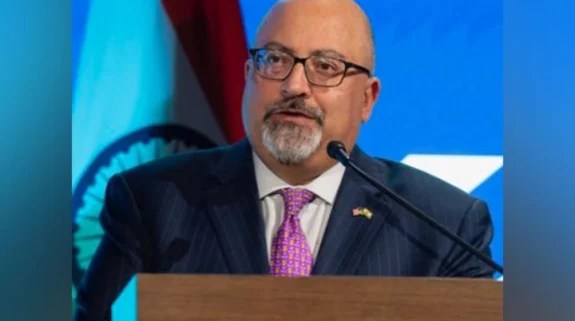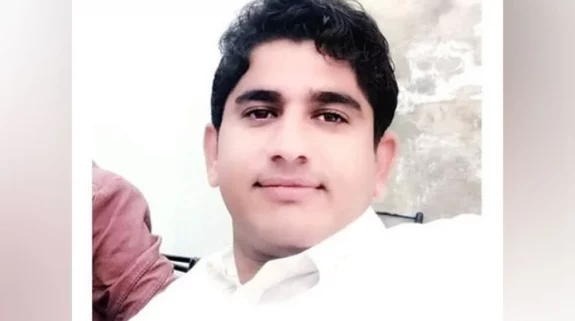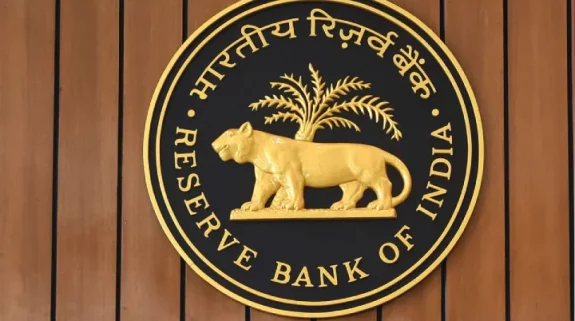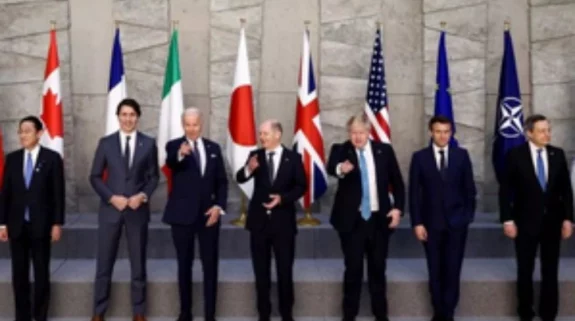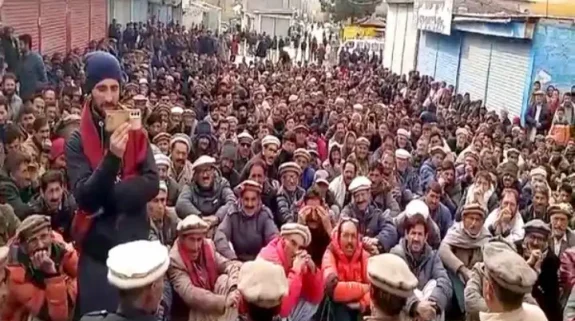KATHMANDU: Dr. Prakash Sharan Mahat is a spokesperson for the ruling Nepali Congress (NC) party in Nepal. He is one of the confidants of Sher Bahadur Deuba, the incumbent prime minister and president of the NC. Mahat is a multi-time minister and presently a member of parliament. Santosh Ghimire, Nepal Correspondent for the India Narrative recently spoke to Dr. Mahat on the contemporary political situation of Nepal including the ongoing inter-party negotiations to form the new government. Excerpts:
Q)The Nepali Congress has emerged as the largest party through recent elections in Nepal. Did the elections meet your party’s expectations?
A) Our party has become the largest political party with 89 seats. But we had higher expectations than what we have achieved through the recently-held polls. Despite that we are not unhappy with the election outcomes.
Q) How did the five-party ruling coalition perform? What is your party’s assessment?
A) The five-party ruling coalition performed well in the recent polls. Coalition partners are happy with the poll results that they have achieved. We strongly believe that the current five-party coalition will continue to stay in power. Although partners in the coalition have different political ideologies, they will work together for the country’s larger national interests. Coalition partners primarily have three common specific goals in mind—safeguard the current constitution, give political stability and bring about prosperity. They will work together to realize these goals.
Q) How will the ruling coalition settle the matter of power-sharing?
A) As far as concerns about the power sharing, partners in the coalition have intensified their meetings. They will arrive at a consensus soon.
Q) Despite having rounds of negotiations, ruling parties have not been able to make headway. What is the major bone of contention among them?
A) The bone of contention at present is all about who becomes the next prime minister. Mr. Prachanda, a key leader of the ruling alliance, has expressed his desire to have the role of the country’s chief executive. But, given the leadership position of the Nepali Congress and given the number of seats that our party has achieved, we feel that naturally we should lead the next government. Our party president Sher Bahadur Deuba is the candidate for the post of the prime minister. However, discussion is going on. We believe that the issues will be resolved amicably.
Nepali Congress (NC) lawmakers have demanded the formation of a new government under the leadership of party President Sher Bahadur Deuba.https://t.co/GRqfG6BLvJ
— República (@RepublicaNepal) December 24, 2022
Q) But, Dr. Mahat, there was also a strong voice inside the Nepali Congress party for a change in the party’s parliamentary party leadership thus giving a chance for young leaders like Gagan Thapa to become the country’s prime minister. Why did the party leadership ignore the growing demand for the handover of power to the younger generation?
A) It is not true that there was strong demand in our party for the handover of power to a younger generation. There were debates on it only on social media platforms. Given his role in taking forward the current ruling alliance smoothly and his long political experience, President Deuba is an undisputed figure at this point of time. Another thing is the leadership is chosen not based on age factor. The leadership is picked as per the need of the hour. Hence, the majority of party lawmakers voted for Deuba in the parliamentary party elections.
The 46-year-old guy Gagan Thapa is vying for parliamentary party leadership of Nepal's Grand Old Party- Nepali Congress. His competitor is party President, incumbent PM and the 76-year-old guy Sherbahadur Deuba. 1/2 pic.twitter.com/iAKaqYD2LG
— Birat Aanupam (@birat_anupam) December 20, 2022
Q) Will there be a package deal on power-sharing among the partners in the ruling parties?
A) Yes, of course. There will be a package deal on power-sharing among the parties in the ruling alliance. Since our party does not have an absolute majority in parliament, we can’t say that all the country’s plum posts should go to us. We will share all the portfolios in the to-be-formed government too. As far as the post of the prime minister is concerned, we are ready to go on a rotational basis (for example one party can take this position for two and half years and the other can do the remaining two and half years.) Besides that, the partners in the ruling alliance will share the plum posts at the provincial levels as well.
Q) Do you believe that Nepal’s political parties will be able to break the impasse over the formation of a new government within the deadline, which is December 25, 2022, set by President Bhandari?
A) Yes, of course. The partners in the ruling coalition have been holding intense discussions to strike power-sharing deal within the stipulated timeframe—which is coming Sunday, December 25. The partners in the coalition will have to share the country’s plum posts including prime minister, president, speaker and among others. I think ruling parties will conclude inter-party negotiations soon and strike the power-sharing deal amicably.
Time ticks on the Nepali Congress led alliance to reach a consensus on government equation as the deadline given by the President inches closer.#KantipurNews pic.twitter.com/8dCz0fh66x
— Kantipur TV HD (@KantipurTVHD) December 24, 2022
Q) Dr. Mahat, what about the potential candidates for the country’s president? Is there any consensus among the ruling parties over who should get this top job?
A) The Nepali Congress, of course, believes that it should take the post of the country’s president as the largest party. In our party, senior leader Ram Chandra Poudel is a leading candidate. However, partners in the coalition also may stake claim for the post
Q) Lastly, how does your grand old party value longstanding ties with India? If the Congress leads the government, how will it take forward ongoing bilateral cooperation with India?
A) We believe that Nepal’s relationship with India is very important. We have historic, civilization and cultural ties. Nepal and India have open border. We don’t need visa to travel to each other’s country. Our bilateral relationship is unique in many senses. There is a multi-layered intense cooperation between the two countries. Given their intense engagements, there have been ups and downs in the relationship. But, we have moved forward. For example, there are some outstanding bilateral issues, including border row in Kalapani. Nepal has strong historical evidences that Kalapani belongs to us. Nepal and India can sit together, listen to each other’s arguments and find a way out for such issues. To sum up, the Kalapani dispute has to be resolved diplomatically through dialogues without bringing any hurdles to our friendly ties.
As far as concerns about the bilateral cooperation, we have made good progress so far. India has been assisting us to build development projects. In the days to come, we welcome grant support from India in developing connectivity projects including proposed East-West Railway. Nepal has very limited resources. Thus, it expects grants from foreign countries including India and China to build mega projects suchas railways.






